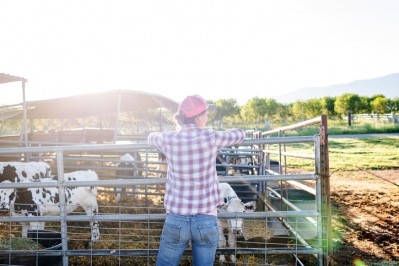From taxing salt and sugar to reducing animal proteins: The controversial proposals in the UK’s National Food Strategy paper

The National Food Strategy, an independent review led by businessman Henry Dimbleby, was released this morning. Dimbleby described the document as an examination of ‘how the food system really works’, ‘the damage it is doing to our bodies and our ecosystem’, and ‘the interventions we could make to prevent these harms’.
“The food system we have now has evolved over many years. It won’t be easy to reshape it. But time is not on our side. The effects of climate change are already becoming apparent around the world. Diet related disease is putting an intolerable strain on our nation’s health and finances – and COVID-19 has only increased the pressure. For our own health, and that of our planet, we must act now,” he stressed.
The document set out a comprehensive set of 14 recommendations, spanning land-use and food production, diet-related inequality and disease, and the promotion of a ‘long-term shift in our food culture’.
Tax sugar and salt
The report says that we need to ‘escape the junk food cycle’ in order to combat diet related NCDs and protect the National Health Service.
“The Government should introduce a £3/kg tax on sugar and a £6/kg tax on salt sold for use in processed foods or in restaurants and catering businesses,” the report maintained. “This would create an incentive for manufacturers to reduce the levels of sugar and salt in their products, by reformulating their recipes or reducing their portion sizes.”
According to the document, this tax would lower the average sugar intake by 4–10g per person per day, and the salt intake by 0.2–0.6g per person per day.
The National Food Strategy team, which undertook an extensive consultation period, said CEOs of ‘major food companies’ have ‘privately’ indicated that they can’t make these changes without the ‘level playing field’ that only government intervention can provide.
Graham MacGregor, Professor of Cardiovascular Medicine at Queen Mary University of London and chairman of campaign group Action on Salt believes the introduction of such a tax would ‘improve the health of the nation’.
"If ever there was an opportunity to finally transform our food system to save lives – this is it – especially the call for a landmark salt reformulation tax which will make the UK the first country in the world to have a mandatory salt levy.
“Previous attempts by the government to encourage voluntary reformulation have failed which is why more fiscal measures are urgently needed to address the country’s shocking health inequalities. The question is, are food manufacturers willing to make their food healthier by reformulating?"
In contrast, the Food and Drink Federation – the industry body representing the interests of the food sector – dismissed this conclusion, insisting that such a tax would fail to spur reformulation and instead drive up food prices.
“These taxes will not drive reformulation. Food and drink manufacturers have been voluntarily lowering fat, salt and sugars in recipes for decades as well as reducing portion size, but it takes time to change much-loved products,” argued FDF chief scientific officer Kate Halliwell. “A salt and sugar tax will ultimately impact those families who are already struggling to make ends meet, by making food and drink more expensive.”
The food price issue appears to have struck an early chord with UK Prime Minister Boris Johnson, who was quoted in the national press as distancing himself from the possibility of fiscal measures. During a speech in the West Midlands, when asked about the paper, Johnson responded: ”We believe in tackling obesity, trying to help people to lose weight, promoting exercise and tackling junk food advertising and so on.
“I am not I must say attracted to the idea of extra taxes on hard-working people, let me just signal that.”
Richard Harrow, chief executive, British Frozen Food Federation said it will be ‘interesting to see how many of the recommendations are adopted ‘ and stressed that the proposed tax would place ‘increased pressure on food businesses’ who are ‘already struggling to get back on their feet after lockdown’.
“Many are dealing with crippling staff shortages and the costs of reformulation are a burden many are simply unable to shoulder,” he argued, describing the UK sector as ‘world leaders in salt reduction’.
The meaty issue of animal agriculture: Making alt. protein the 'default choice'?
Harrow expressed caution that the report failed to place the consumer at the heart of its recommendations. “I am concerned that it does not take into account what the consumer wants. Rather, it appears to be taking the stance of knowing what’s best for them, and I am sceptical about how this approach will be received by the public.”
Perhaps the most significant example of this is the report's recommendations on the consumption of animal-based proteins, already a highly polarizing subject.
The report calls for a 30% reduction in meat consumption between 2019 and 2032 in order to meet ‘health, climate and nature commitments’.
“One of the most effective ways to reduce carbon emissions and free up land for nature is to cut back on animal proteins. 85% of the land used to feed us is used for livestock farming, even though meat and dairy only account for one-third of our calories. Plant-based proteins produce, on average, 70 times less greenhouse gas emissions than an equivalent amount of beef, and use more than 150 times less land,” the paper argued.
The report’s authors stress that the plant-based market offers significant potential for growth and advocate exploiting this as a route to economic development. In particular, they want to see government financing to support bringing the boom in food tech – particularly in the alt. protein space – to UK shores.
It calls on the government to invest £1 billion in research into areas such as plant-based proteins to position the UK at the forefront of this industry. The NFS recommends £50 million of government investment in building shared facilities for a commercial “cluster” for entrepreneurs and scientists working on alternative proteins. It also calls for annual grants of £15 million for sustainable protein start-ups from the new Challenge Fund.
“We estimate that developing and manufacturing alternative proteins in the UK, rather than importing them, would create around 10,000 new factory jobs and secure 6,500 jobs in farming.”
Jeremy Coller, founder of the $38-trillion-backed FAIRR investor network and Chief Investment Officer at Coller Capital warmly welcomed this approach. FAIRR research has found that 86% of major meat and dairy suppliers are failing to declare or set meaningful emissions reduction targets, and 70% are at high risk of spreading future pandemics.
“I have long argued that we cannot reach net-zero, or prevent future pandemics, without addressing this sector’s unsustainable climate and health footprint,” Collier said. “Protein diversification is a profitable path for reducing ESG impacts in animal protein supply chains. Therefore, the goal of increasing plant-based food consumption by 2030 and seizing the opportunity presented by alternative protein innovation is extremely encouraging for ESG-conscious investors.”
Likewise, alternative protein advocate The Good Food Institute backed the recommendations. “Investing in this sector is a no-brainer if the government wants to meet its climate targets without enforcing drastic diet changes. Ministers must deliver Henry Dimbleby’s plan to make the UK a world leader in sustainable proteins,” urged Elena Walden, policy manager at the Good Food Institute Europe. “Until now, the burden of cutting meat consumption has too often been placed on individuals – so it’s refreshing to see the National Food Strategy focus instead on making sustainable alternatives the default choice.”
Unsurprisingly, perhaps, the farming lobby was less enthused about this aspect of the report. National Farmers Union (NFU) president Minette Batters was quick to highlight the sustainability credentials of UK meat production – with the UK farming sector having already committed to net zero emissions by 2040, ten years ahead of the timeline set out in the Paris Agreement to curb climate change.
“It is important that we do not throw meat into one blanket category and that we all make a clear distinction between grass-fed British meat and cheap imports,” Batters – a long-time advocate of trade policy recognising Britain’s higher environmental and animal welfare standards – argued.
“We should be considering British meat in its own category, recognising its sustainability and dense nutritional value. After all, scientific and medical communities agree it is a key part of a healthy, balanced diet, chock full of essential vitamins and minerals. This strategy says major reform is needed of the food system. I would suggest we first look at the actions our government is taking by agreeing to trade deals that welcome in imported meat in limitless amounts.”
Here, it seems likely Dimbleby would be in agreement. “The Government should, as a matter of urgency, draw up a list of core minimum standards which it will defend in any future trade deals. These should cover animal welfare, environment and health protection, carbon emissions, antimicrobial resistance and zoonotic disease risk,” the report concluded.
The National Food Strategy’s 14 recommendations
Escape the junk food cycle and protect the NHS
- Introduce a Sugar and Salt Reformulation Tax. Use some of the revenue to help get fresh fruit and vegetables to low-income families.
- Introduce mandatory reporting for large food companies.
- Launch a new “Eat and Learn” initiative for schools.
Reduce diet-related inequality
- Extend eligibility for free school meals.
- Fund the Holiday Activities and Food programme for the next three years.
- Expand the Healthy Start scheme.
- Trial a “Community Eatwell” Programme, supporting those on low incomes to improve their diets.
Make the best use of our land
- Guarantee the budget for agricultural payments until at least 2029 to help farmers transition to more sustainable land use.
- Create a Rural Land Use Framework based on the three compartment model.
- Define minimum standards for trade, and a mechanism for protecting them
Create a long-term shift in our food culture
- Invest £1 billion in innovation to create a better food system.
- Create a National Food System Data programme.
- Strengthen Government procurement rules to ensure that taxpayer money is spent on healthy and sustainable food.
- Set clear targets and bring in legislation for long-term change.










